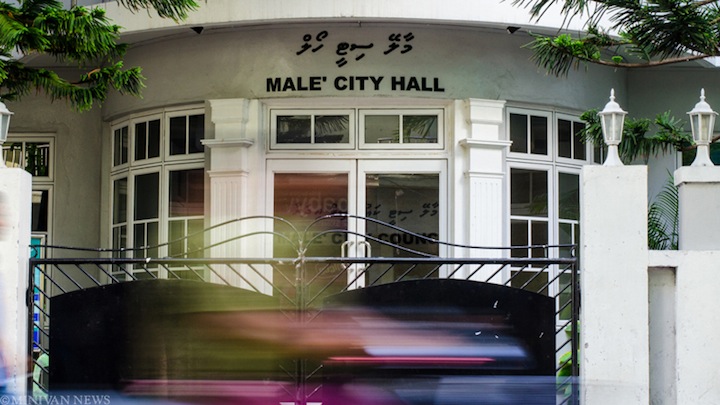Specialist Operations (SO) police officers have conducted training exercises ahead of an anti-government mass rally on May 1.
The opposition alliance, made up of the main opposition Maldivian Democratic Party (MDP), the Adhaalath Party (AP) and leaders of business tycoon Gasim Ibrahim’s Jumhoory Party (JP), expects at least 25,000 people to take part in the May Day protest.
MDP vice president Mohamed Shifaz told Minivan News that the alliance does not expect a heavy-handed crackdown from police.
“We are not talking about overthrowing the government on May Day. We want an end to the brutality shown against Maldivian citizens by president [Abdulla] Yameen’s government,” he said.
Leaders of the opposition alliance have been traveling across the country in recent days, holding rallies and urging opposition supporters to converge on the capital on May 1.
Last week, tourism minister Ahmed Adeeb challenged the opposition to a confrontation on May Day, prompting fears of a stand-off and civil unrest.
Opposition leaders have said the mass rally will force president Yameen to “come to the negotiating table” and discuss the release of imprisoned ex-president Mohamed Nasheed and ex-defence minister Mohamed Nazim.
The SO training meanwhile took place on the island of Feydhoo Finolhu during the weekend and involved exercises on controlling protests.
Police said the first round of the training session has concluded and all SO officers and other officers transferred to the department participated in the exercises.
Similar exercises were carried out with stun guns and grenades ahead of an MDP-JP mass rally on February 27.
In a sermon in Malé on Thursday night – attended by senior members of the allied parties – head of the AP’s religious scholars’ council, Sheikh Ilyas Hussain called on the police and military not to “brutalise” any Maldivian citizen.
Ilyas urged police to disregard orders from superiors to use force against the public.
Meanwhile, speaking at a futsal stadium opening event in Lhaviyani Naifaru on the same night, Adeeb said the current government cannot be overthrown through street protests.
The deputy leader of the ruling Progressive Party of Maldives said only 60 or 70 people were taking part in the nightly protests.
The opposition alliance “cannot do anything,” he said.
In response, Shifaz said today that the rally on February 27 had considerably more than 60 or 70 people.
“We are doing what an opposition party is supposed to do,” he said.
Shifaz said it was inappropriate for a minister to mock and challenge the opposition.
He suggested that Adeeb and other senior government officials were “unfamiliar” with the new democratic constitution and multi-party democracy.
“We were there even at the start of the work and awareness of democracy. Maybe Adeeb is too young to be familiar with ruling through a democratic system and the constitution. How can such people rule the country?” he asked.


